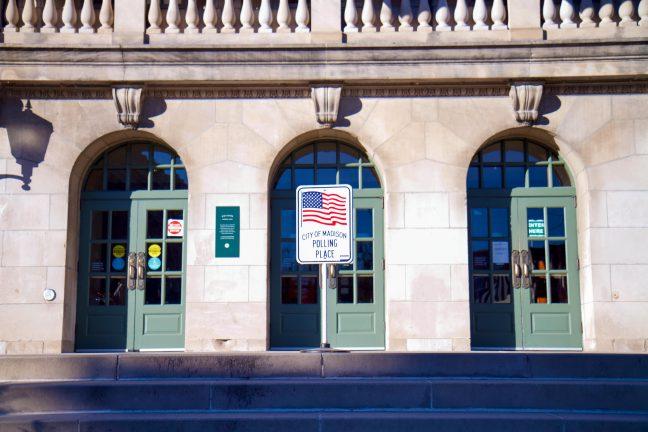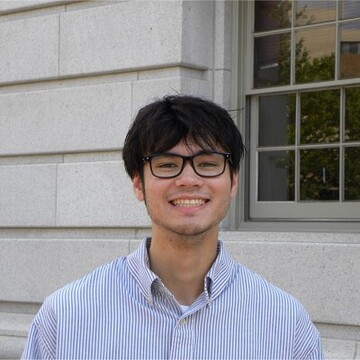La Crosse County Circuit Court Judge Elliot Levine released his decision in the case of Werner v. Dankmeyer Sept. 19, re-affirming the right of Wisconsin college students to vote at their campus addresses.
Plaintiff Mary Jo Werner argued that some University of Wisconsin–Lacrosse students who voted in the La Crosse County Sheriff Election in 2022 did not have proof of residency in La Crosse, and should instead vote only at polling places corresponding to their parent’s address, according to an Amicus Brief filed by Common Cause Wisconsin.
Students would have become unable to vote where they live, study and work if Werner had won the case, according to the brief. In turn, had the case had gone in Werner’s favor, there could have potentially been a large backlash from students if voting rights were to change, University of Wisconsin–Madison student and Wisconsin Public Interest Research Group intern Delaney Sullivan said.
“We know that young people in Wisconsin are very passionate about our elections,” Sullivan said. “And if voting were to be an issue in Wisconsin, where they’d have to go home, I think there would be a very big backlash against that because, everyone here is really passionate about the laws that are being made”
According to UW–Madison sophomore Amanjot Kaur, Wisconsin students have nothing to worry about as of now. As an intern for Badger Vote and Chup, Go Vote! Kaur works with the campus community to assist in reducing obstacles to voting on campus.
“For now, there are no changes to the process for where students can vote,” Kaur said. “Here at UW–Madison, students shouldn’t be worried about whether or not they’ll be able to continue voting on campus.”
The UW–Madison student voter turnout rose 7.4% between the 2016 to 2020 general elections, according to the National Study of Learning, Voting and Engagement Campus Report. The total voting rate at UW–Madison in 2020 was 72.8% — 6.8% above the national average for college campuses.
As a result, a larger emphasis has been placed on the student vote by campaigns and political groups, Kaur said.
“I would very much agree with the sentiment that student vote has become more and more important with the last two to four election cycles like 2020 and beyond,” Kaur said. “I mean, we saw for example, during the midterms last year and during the April elections last year, or earlier this year in 2023, that a lot of campaigns and a lot of groups, partisan and nonpartisan, really emphasize turning out and outreach on college campuses. And I think that’s only going to become a bigger phenomenon, especially next year with 2024.”
Werner v. Dankmeyer, filed in November 2022, centered around the La Crosse County Sheriff election. After losing the race, candidate Fritz Leinfelder filed for a recount in La Crosse wards 9, 10 and 11, according to Judge Levine’s decision. The recount was administered by the La Crosse County Clerk and defendant Ginny Dankmeyer.
The plaintiff, Mary Jo Werner, claimed that her vote for Leinfelder was offset or “diluted” by student absentee votes. Werner said the votes were ineligible and should have been rejected by Dankmeyer upon recount, according to WXOW.
Werner cited illegible witness signatures on absentee ballots, the absence of recorded requests for absentee ballots by students and missing proof of residency all as reasons to exclude student votes from the recount, according to WXOW.
Wisconsin Common Cause’s brief called upon the help of constitution legal scholar Yael Bromberg and argued to the court that Werner’s claims would violate both the Wisconsin and National Constitution, according to the brief.
Werner’s claims also violated the 26th Amendment, according to the brief. The 26th Amendment forbids discriminatory voting practices against voters aged 18-20, including citing non-residency as a reason for dismissing voters, according to the brief.
But, the 26th Amendment doesn’t defend well against other attacks on student voting such as changes in student voter ID registration, UW clinical associate professor and election law expert Steven Wright said.
“In terms of a college ID being an acceptable means of voter identification,” Wright said. “They don’t defend against it particularly well. Because 18-year-olds can still get a driver’s license, passport, or hunting license.”
Kaur said getting out to vote is one way for students to preserve their right to vote. Kaur also said students looking to protect their voting rights should also reach out to legislators more frequently than in the past.
Some students believe that their legislators don’t pay attention to the student perspective, Kaur said. But legislators genuinely are interested in understanding struggles faced by students, and contacting them to ensure they understand what is important to students is a great way to protect student rights, Kaur said.
Young people are mature enough to vote if they have the proper resources and guidance, Sullivan said.
Student voices need to be heard, Sullivan said.
“What they [students] can do is really just advocate for themselves, and our goal is that we really want them to be able to have the resources to vote,” Sullivan said.



